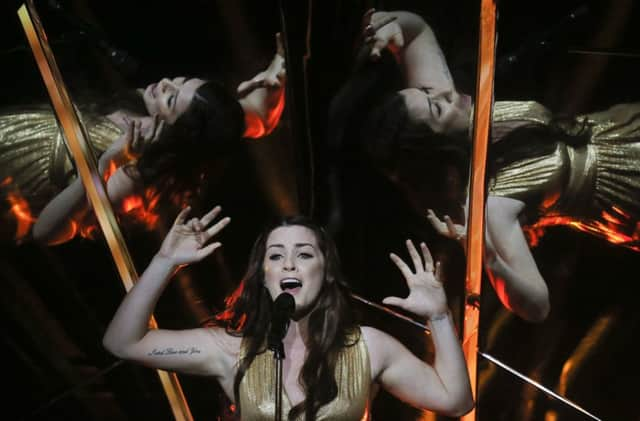David Behrens: Yes, it's all about the politics, but Eurovision still gets my vote


Eurovision has long been a hostage to politics, but tonight sets a new low bar. If I were the British entrant, Lucie Jones, I’d drop the mic and get my coat.
I like Eurovision, though – even if it is sometimes the musical equivalent of bashing yourself on the head with a tea tray. I don’t share the view expressed by its former host, Sir Terry Wogan in 2014, when the winning performance was by a bearded drag artiste, that it has descended into a freak show.
Advertisement
Hide AdAdvertisement
Hide AdOn the contrary, there is something life affirming about a fusty old event from the 1950s being worn by a new generation of young Europeans as a badge of free expression. Many – including tonight’s hosts – inhabit countries where freedom of thought is still a novelty and for whom watching Sandie Shaw sing Puppet on a String in bare feet would have been tantamount to treason. Besides, pop music has always been a freak show of one sort or other.
I am amused, too, at the monumental proportions Eurovision has assumed since they staged it here in Yorkshire 35 years ago.
That followed the winning, skirt-ripping performance by Bucks Fizz in Dublin, 12 months earlier. The BBC had chosen Harrogate as the venue because its conference centre was brand new and the biggest outside London and Brighton.
I was there, and by my recollection it more closely resembled a medium-sized convention of heavy drinking business people than a global media circus. Even by the standards of the time, the venue was cosy – a 2,000-capacity auditorium was a tea party compared to the 7,000-seat pavilion that Irish TV had taken over the year before.
Advertisement
Hide AdAdvertisement
Hide AdBut as a shop window for Yorkshire, it was an opportunity unparalleled until the Tour de France three decades later.
The interval act, which would in later years be reclaimed by Ireland’s Riverdance spectacle, consisted of travelogue footage of the county, for the benefit of international tourists. The BBC also helpfully screened an introduction called Where is Harrogate? to save them having to consult a map.
Treating travellers as if they had never been further than the end of their street was a time-honoured television tradition. Only a few years earlier, ITV had aired an adult education series called Holidays Abroad, which took as its theme some of the questions it believed most troubled first-time holidaymakers. Among these: Is Italian food greasy? Are the Danes permissive? And will I need a travel agent? That was the billing in TV Times.
Travel is an issue again this year. Russia has withdrawn from the contest because its performer has been barred by the Ukrainian hosts for having performed an “illegal” concert in Crimea, over which it and the Ukraine are at loggerheads.
Advertisement
Hide AdAdvertisement
Hide AdA Russian minister went so far as to call the travel ban “cynical and inhumane”, which is rich for a country that prevented generations of its own citizens from going anywhere.
I have never forgotten the expressions on the faces of families I met in Moscow and Leningrad in 1976 when I asked if they had ever wished they could see Paris in the springtime, or the New York skyline. The idea was as alien to them as hopping on a rocket to Mars.
Ukraine is hosting the event this year because its singer, Jamala, won last May with a song about the mass deportation of Crimean Tatars by Stalin during the Second World War. That speaks volumes about the political affiliations that drive the voting, as does the fact that the European Broadcasting Union, which organises the whole shindig, is an EU all by itself, in which Britain, France, Italy, Germany and Spain hand over a disproportionate slice of the funding, for the benefit of smaller countries.
All of these things combine to make a nonsense of Eurovision’s claim to be a non-political event for entertainment purposes only. Nevertheless, by tuning in tonight, I will cast my vote to remain in the fold, just as I did at the polling booth last June.
A lot of good that did.